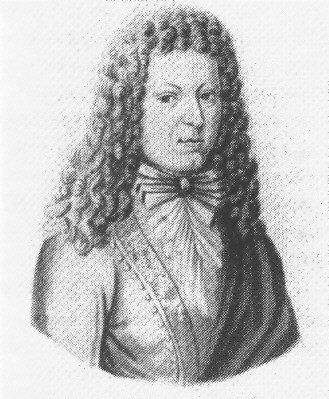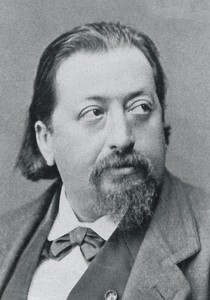
Johann Kuhnau |
Johann Kuhnau

German composer, organist and music writer. He studied at the Kreuzschule in Dresden. In 1680, he acted as cantor in Zittau, where he studied organ with K. Weise. From 1682 he studied philosophy and jurisprudence in Leipzig. From 1684 he was an organist, from 1701 he was the cantor of the Thomaskirche (the predecessor of J. S. Bach in this position) and the head of music studies (director of music) at the University of Leipzig.
A major musician, Kunau was a well-educated and progressive figure of his time. Kunau’s composing work includes many church genres. His clavier compositions occupy a significant place in the development of piano literature. Kunau transferred the cyclical form of the Italian trio sonata into clavier music, created works for the clavier that did not rely on traditional dance images. In this regard, his collections are significant: “Fresh clavier fruits or seven sonatas of good invention and manner” (1696) and especially “Musical presentation of some biblical stories in 6 sonatas performed on the clavier” (1700, incl. “David and Goliath “). The latter, along with the violin sonatas “In Praise of 15 Mysteries from the Life of Mary” by G. J. F. Bieber, are among the first software instrumental compositions of a cyclic form.
In Kunau’s earlier collections – “Clavier Exercises” (1689, 1692), written in the form of old dance partitas and similar in style to the clavier works of I. Pachelbel, tendencies are manifested towards the establishment of a melodic-harmonic style.
Among Kunau’s literary works, the novel The Musical Charlatan (Der musikalische Quacksalber) is a sharp satire on the Italomania of compatriots.
I. M. Yampolsky





